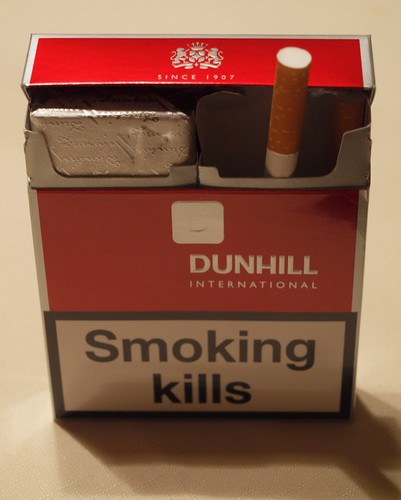On the other hand, those who oppose plain packs (including me) have argued that it violates intellectual property rights, business rights to brand their goods distinctively, freedom of speech and expression, international trade laws, and that it will burden retailers and increase the illicit and counterfeit tobacco markets. Whether you believe any of these are valid arguments is your choice to make. But there is another aspect of plain packaging that is rarely addressed, so I aim to do so here.
That aspect is the standardisation of pack size. At first glance this may not seem like a big issue to anyone including many smokers. Many brands share an identical packaging format and therefore are already the same size. The format, the shape of a box of machine-made cigarettes, is at its heart a functional design. Packets are ultimately designed to store and prevent damage to the cigarettes before and after they are purchased by the consumer. Plain packs legislation won't change the format of king size packets holding 20 cigarettes, but plain packs will greatly affect other formats that perhaps you had not considered. By the changing the format of extra-long and slim-sized cigarettes, plain packs seeks to eradicate those brands from the market.
Take a box of Dunhill International for example. Perhaps due to the length of the filter, they come in slightly larger than typical king size cigarettes in comparison. Although the packet holds 20 cigarettes, the design is nothing like a standard king size box -- the cigarettes are contained in two discrete sections of 10, each with a separate foil for freshness. As you can see from the image below, there is nothing about this pack that is standard, nor could you say there is anything about the design that appeals to children. Indeed, you could say that the pack design is a bit old-fashioned or perhaps nostalgic.
 |
| Image Via Flickr |
And that is the real point of plain packs. It may look like it's an attack on the tobacco industry, which it certainly is, but it is also an attack on adult consumers. By forcing all cigarette brands into a standard size, consumers will be forced to abandon brands that they have long enjoyed. To the average non-smoker who has never smoked (and to a good many smokers who say they don't care about the pack design, they just want their fags) pack size is an irrelevance hardly worthy of consideration. Plain packs legislation exploits the indifference of the majority to inflict change on a minority who truly do care.
So what will happen to superslim cigarettes that many people enjoy smoking? Obviously, these could never fit into a standard king size box, so plain packs seeks to force change on the cigarette design itself, so there will no longer be a superslim size. Nor will there be extra-long cigarettes (such as 100s), nor packs of 10 or 25 cigarettes. There will only be one size of cigarettes regardless of brand. It cannot be denied that this in itself is incredibly communistic. Communism by design abhors freedom of choice for its citizens -- what is deemed good for one is deemed good enough for all. That of course goes entirely against human nature.
The aim of plain packs legislation is not about protecting health, for even the tobacco control industry admits this. It is not about protecting children from taking up smoking no matter how often they claim it to be that. It is about attacking adult tobacco consumers by taking away their ability to choose products that suit their desires and tastes. Plain packs is truly about punishing consumers (along with retailers and tobacco companies) by making it increasingly difficult to enjoy a legal and excessively-taxed product, forcing you to change your brand to the government-sanctioned variety. For the fanatics who seek to enforce their will on to others, it is always about denormalising adult human beings who do not conform to their quasi-religious tobacco control movement.
If we allow plain packs legislation to be enacted in the United Kingdom, there will be nothing to stop anyone from dictating how your food will be packaged including the size of a hamburger, or the shape of a bottle of whiskey. If this precedent is set in the UK, the government can then use this to decide what designs and brands may appear on your clothing such as T-shirts -- because if the cigarette pack design is considered an advertisement, then so must any brand that appears on a T-shirt be a tempting advertisement designed to ensnare the gullible and helpless children who need protection from harmful logos and trade marks.
